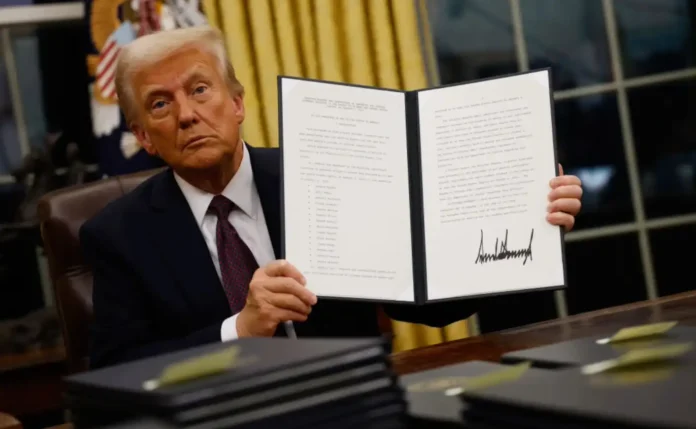The U.S. Election Assistance Commission (EAC), a little-known agency created in the aftermath of the 2000 presidential election ballot controversy, is now under the national spotlight as it becomes a focal point of a new executive order aimed at reshaping the country’s election systems.
Initially formed to help states modernize voting equipment and improve election administration, the commission has operated largely in the background for over two decades. But its role has suddenly become prominent following directives issued by President Donald Trump in March, which seek to implement sweeping changes to voter registration and election security.
One key directive requires the national voter registration form to include a proof-of-citizenship requirement potentially mandating applicants to provide documentation such as a U.S. passport, military ID, or a REAL-ID compliant driver’s license paired with citizenship proof. The order also instructs the commission to withhold federal election funds from states that do not comply with these new standards, except where federal exemptions apply.
The EAC’s Standards Board is set to convene this week in North Carolina for its annual meeting, the first commission-related event since the order was signed. The meeting is expected to draw considerable attention, as election officials from across the country seek clarity on the agency’s evolving role and responsibilities.
Questions are already being raised about whether an executive order can compel an independent federal agency to carry out such changes and whether the commission itself has the legal authority to enforce them. Legal challenges are anticipated, and the courts may ultimately determine the extent of the commission’s power in this context.
In a recent communication with state election officials, the commission’s executive director outlined the proof-of-citizenship elements of the order and requested feedback on how such changes could be implemented and what impact they might have on voter registration processes.
Commission Chairman Donald Palmer emphasized that any changes to the federal voter registration form must follow established legal procedures. He noted the agency’s consistent adherence to these processes and said the current effort is primarily focused on gathering input from states.
“We remain committed to following the law and ensuring transparency as we move forward,” Palmer said, adding that the legal questions raised by the executive order will likely be resolved through the courts. While the commission operates within the executive branch, it remains an independent agency—making its involvement in implementing the order both complex and significant.
For more political updates, visit DC Brief.


